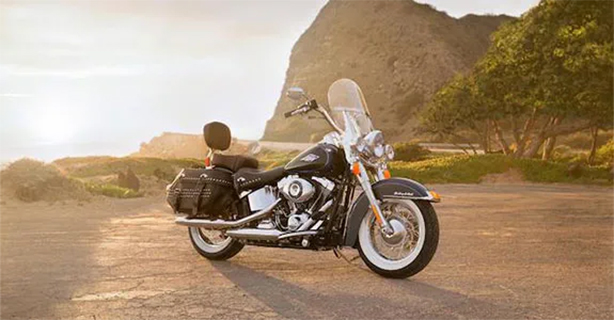HOW ARE MOTORCYCLE LAWS DIFFERENT BY STATE
We all love hitting the open road on our motorcycles.
Before we ride, we make sure we have our things together: a helmet, up-to-date tags on our license plates, a valid driver license (with a motorcycle endorsement!), and proof of insurance.
We make sure our bike is in working order before hitting public roads:
oil is where it's supposed to be
chains or belts are ship-shape
anti-lock brakes are primed
tires are inflated to the right PSI
We all know what is required in our own neck of the woods, but what happens when you ride across state lines?
As of the writing of this post, we have outlined some of the major differences in state-to-state motorcycle laws and insurance limits so that you can remain compliant and update your insurance (or riding practices) accordingly.
It is worth noting, however, while helmet laws may not change often, the minimum insurance coverages by state can change more frequently. We have some additional tips below to make sure you can find the most up-to-date information for your destination.
WHAT ARE HELMET LAWS BY STATE?
Almost all states have helmet laws, but they may all be very different.
If you live in or travel to Iowa, Illinois, or New Hampshire, you can choose to wear a motorcycle helmet (or not).
On the opposite end of the spectrum, the following states all have a helmet law:
Alabama
California
Washington D.C.
Georgia
Louisiana
Maryland
Massachusetts
Mississippi
Nebraska
Nevada
New Jersey
New York
North Carolina
Oregon
Tennessee
Vermont
Virginia
Washington
West Virginia
The rest of the states have half-measures that are dependent on age.
Age Determined Motorcycle Helmet Law
Some states say that everyone 17 and under needs a motorcycle helmet.
Some say 18, and up to 25 in Missouri (which is the only state to hold this high of an age requirement, in those dependent on age).
Motorcycle Type Helmet Law
A few states have caveats depending on the type of motorcycle you are riding.
In New York, for example, you don't need a motor scooter license or helmet if the scooter is below 50cc's, but a motorcycle helmet is required if the engine displacement is any bigger.
In many states where riding without a helmet is legal, eye protection or safety glass is still mandatory.
While all motorcycle riders can decide for themselves, wearing a motorcycle helmet can save your life (or your wallet once the medical bills start rolling in) in the case of an unplanned incident.
LANE SPLITTING LAWS
Lane splitting is a contentious topic in many states, and the only place where it is 100% legal is in the state of California.
For those who don't know what it is, lane splitting is when a motorcycle rider moves between two cars moving in the same direction on multi-lane roads at speed.
Lane filtering is where a motorcyclist can ride between slow-moving (under 20 miles per hour) or stopped traffic.
Filtering is only legal in five states*:
California
Hawaii
Montana
Utah
There is open legislation or proposals in a few states, but most motorcyclists will need to be careful when considering lane splitting or filtering as it is illegal.
STATE-TO-STATE MOTORCYCLE INSURANCE COVERAGE
For most riders around the world, motorcycle liability insurance, at the very least, is a necessity.
Unfortunately, not everyone gets it like they are supposed to (which is why we have uninsured motorist coverage).
Florida Motorcycle Insurance
Florida is the only state where a motorcycle operator is not required to have insurance!
In the Sunshine state, if an uninsured motorcyclist is involved in an accident, they may be on the hook for any personal injury, property damage, bodily damage, and other types of damage, depending on which driver is at-fault.
Florida motorcycle operators riding out of state can be fined or jailed for riding without motorcycle insurance.
Other State Insurance Coverage Requirements
Outside of Florida, you may need to show your insurance card or provide another proof of insurance to register your motorcycle.
But every state has its own minimum coverage requirements. Those looking for cheap motorcycle insurance will be required by law to hit these coverage limit minimums.
There are a few states on the high end and a few on the low end.
The states with the lowest minimums are**:
Pennsylvania ($15,000/$30,000/$5,000)
California ($15,000/$30,000/$5,000)
New Jersey ($25,000/$50,000/$5,000).
On the high-end is**:
Alaska ($50,000/$100,000/$25,000)
Maine ($50,000/$100,000/$25,000).
BOTTOM LINE ON MOTORCYCLE LAWS BY STATE
There are several ways motorcyclists can conduct research before visiting a new state, including:
Inquire when you seek your motorcycle permit, licensing, or registration
Reach out to the local department of transportation or DMV
Discuss when you purchase your vehicle or rent a motorcycle
Talk to other riders
Check out motorcycle association websites
Even join a local motorcycling club
In fact, if you're looking to ride on back roads, it might be worth your time to join a local motorcycling club anyway, just for the extra benefits (like insurance discounts).
Whatever you do, though, make sure you do your homework and confirm that you have all of the applicable documents, like registration and insurance, before hitting the road so that you don't get pulled over and fined by a police officer.
Ultimately, knowing your state's motorcycle laws are the best way to stay safe on the road.
Related Links:
*Please consult a licensed agent for your state's specific regulations.
**Data accuracy is subject to this article's publication date.

